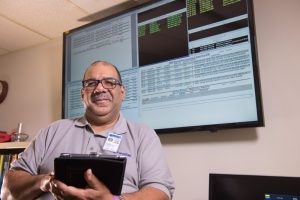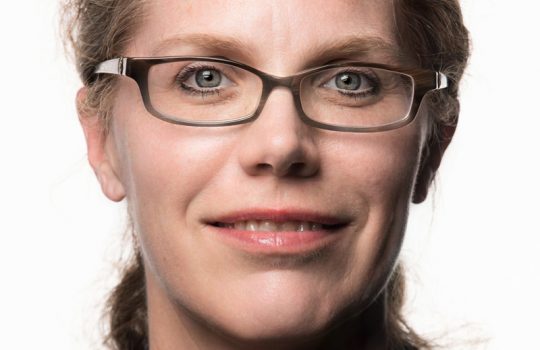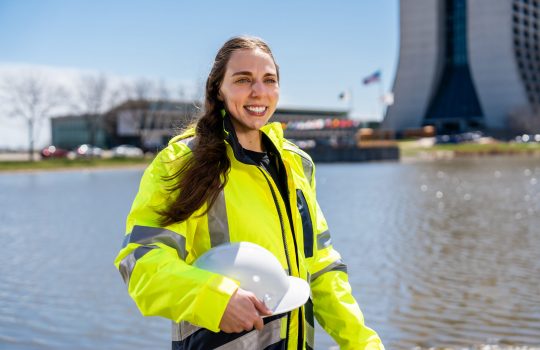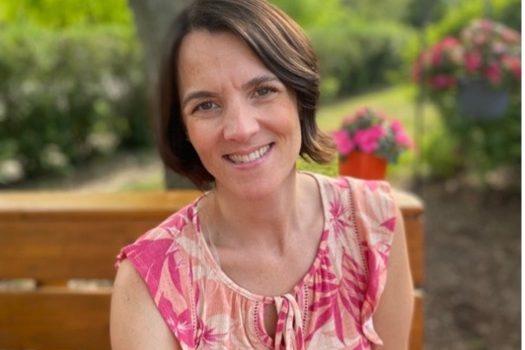
Martin Bentivengo manage the group that plans and schedules all the maintenance work. Photo: Reidar Hahn
How long have you worked at Fermilab?
I’ve been here five years. I started in May of 2011.
What brought you here?
I was working in Kraft Foods in Naperville. I was a maintenance manager there as well. I saw a job ad for Fermilab, and it was pretty much my job at a bigger scale. So I applied.
What does your job entail?
Primarily I manage the group that plans and schedules the maintenance work within the FESS Facility Management Group. I also manage the carpenter’s shop and the fire safety group. The fire safety group is responsible for testing the life safety devices — sprinkler heads, smoke alarms, all those things around the facility.
What does a typical workday look like for you?
It’s a fairly dynamic workday. We have a morning meeting every day. We talk about what the maintenance activities are for the day: industrial cooling water systems, domestic water systems, air handling units, pumps, valves, those types of things. But I’m looking two, three months out. We’re getting away from being reactive and we’re planning things out.
How did you get into this kind of work?
I have a mechanical engineering degree. I first started out doing project engineering for pharmaceutical clients. I moved to the food industry, doing the same kind of project engineering work. But about 10 years in, I attended a conference on facilities management and became intrigued by the breadth and depth of this role in an organization. So I decided to go into maintenance and facilities management.
And that’s what I’ve been doing for the last 20 years or so.
What do you do outside of work?
I’m going for a master’s degree in sustainability, taking online classes. My wife, my daughter and I like to travel. I’m also a history buff — many branches of history. And I like reading. I grew up in the inner city. My mother’s mission was for us to go to college and get a degree. So she was always taking me to the library. Either the library or the science museum.
What’s something people might not know about you?
I’m very involved in diversity and outreach initiatives at the grassroots level, talking to high school students about why STEM is a good career and why college is something a person should do. I can relate to them pretty well because I can say, “Hey, this is the same kind of background I grew up in.” You don’t tend to see engineers or people in STEM fields as role models. So I just expose them to that. Because I know when I was 12, people talked to me about engineering.



